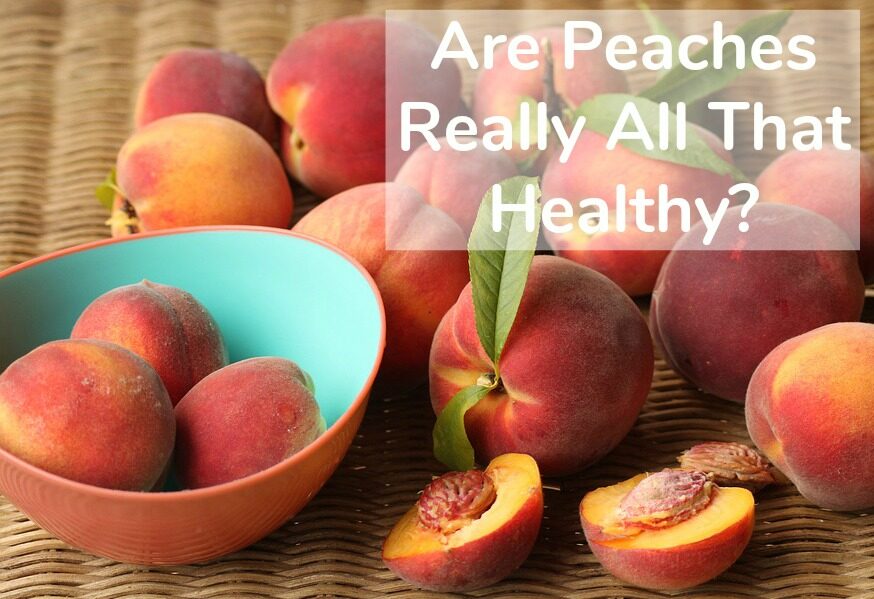Mmmmm Peaches. Sweet, flavorful and juicy, peaches are a favorite of summer especially during July and August in their peak season. It can be very disappointing to get a peach that is tough and dry on the inside. And shoppers have to be careful to avoid buying peaches that have not reached enough ripeness to achieve a rich flavor. Since there is a short window of time for the perfect peach, canned and frozen varieties are a fantastic substitute for our favorite recipes year round. But are peaches even healthy? Here are the nutritional facts about peaches to determine if they are a healthy enough fruit to add to your everyday diet.
The Facts About Sugar, Carbs and Calories in Peaches
On average, a peach has about 15 carbs. Of these carbs 13 are from sugar and 2 are from fiber. The good news here is that peaches are considered a low calorie and low sugar fruit. Eating them will not cause a spike in blood sugar and will also only add about 50 calories to your daily count. These facts about peaches make them a really healthy addition to a low calorie, low carb and low sugar diet. The fact that they are sweet and tasty enough to satisfy craving is outstanding news for those watching their waistline or eating for health!
Vitamins and Minerals
Peaches contain vitamin E, niacin, folate, iron, potassium, magnesium, phosphorus, zinc and copper although the amounts are less than 2% of the RDA (Recommended Daily Allowance). So while they are not loaded with substantial amounts of vitamins and minerals, the Vitamin C content in one piece of fruit is a fairly high 15% of your daily requirement. Vitamin C is a powerful antioxidant that is known to prevent many types of cancers, amp up the immune system and repair cells in the body. As well, it builds teeth and bones, helps wounds heal faster and even fights many types of chronic disease. Vitamin C is one of the best treatments for skin as well because internally it produces collagen and repairs damaged cells caused from factors like sun, pollution and age. When peaches are applied externally to the skin, they can greatly reduce inflammation, fight infection like acne and visibly reduce wrinkles. You can make your own facemasks at home using peaches or look for commercial facemasks with peaches as a main ingredient.
Peaches are not loaded with substantial amounts of vitamins and minerals but the Vitamin C content in one piece of fruit is a fairly high 15% of your daily requirement. Vitamin C is a powerful antioxidant that is known to prevent cancers, amp the immune system and repairs cells in the body. It builds teeth and bones, heals wounds faster and even fights chronic diseases. Vitamin C is one of the best treatments for skin as well because internally it produces collagen and repairs damaged cells. When applied externally to skin, peaches can reduce inflammation, fight infection and reduce wrinkles.

A Fun (and Healthy) Fact About Peaches
It is widely known that fresh fruits and vegetables are preferred over canned for nutrients. Interestingly enough however, in the case of peaches, the canning process causes the Vitamin C to quadruple and greatly increases both folate and Vitamin E. So if fresh peaches are not available, know that choosing canned is a fantastic choice as well. This makes peaches readily available all year long.
Conclusion
There are clearly a lot of reasons why peaches are in fact very healthy, but there are some other benefits as well. Peaches are easy to find, relatively inexpensive, taste great and are easy to add to all sorts of different recipes. In addition, peaches are scientifically proven to reduce the symptoms of allergies, reduce LDL cholesterol, prevent diabetes and prevent deterioration of eyesight. Peaches are actually very healthy and adding them to your normal meal planning is a great idea
Pin this for later. . .

You may also like Family Favorite Recipes Using Peaches

